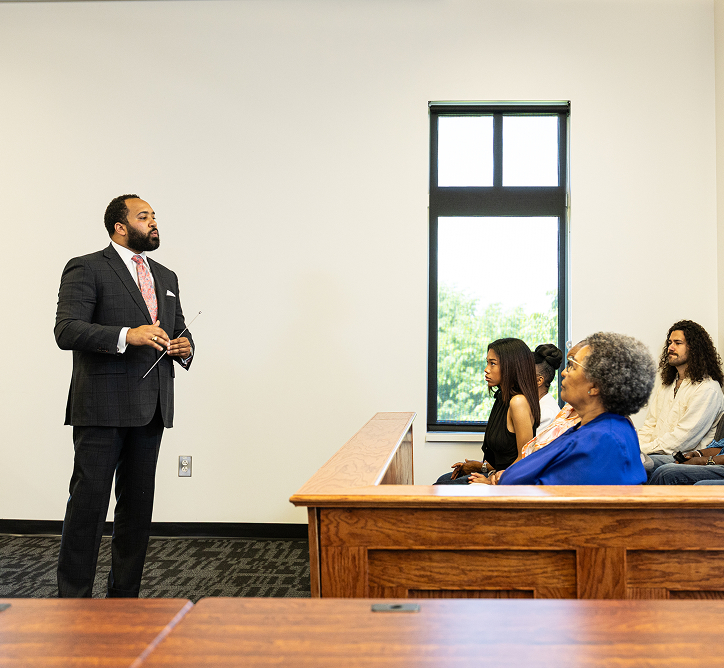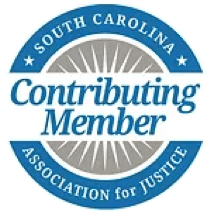
HERE FOR YOU WHEN YOU NEED IT MOST
South Carolina Prisoners' Rights Attorney
If you’re a prisoner in South Carolina, you recognize that your rights are limited, but you should also know that you have important rights related to your personal health, safety, and well-being that are too important to ignore. In fact, there are laws in place at both the state and federal level that address the duty of care you’re owed as someone who is incarcerated. If you are the victim of serious injury or loss as a result of gross negligence on the part of the prison or jail that houses you, you need the focused legal representation of an experienced South Carolina prisoner rights attorney on your side.
864.606.8941Reach Out To Us Today
Your rights deserve to be protected. Get in touch with Mo Abusaft and let’s discuss your case today.
Your Rights as an Inmate
As an inmate in South Carolina – and throughout the nation – you have a range of rights, which include all the following:
- You have the right to be free from physical attack from inmates.
- You have the right to be free from physical attack from guards and SCDC employees.
- You have the right to be free from sexual attack.
- You have the right to be released on time and not held beyond your max-out date.
The prison guards in the facility where you are housed owe you a duty of care that involves protecting your rights in each of these categories. If they fail to do so, you may have the right to take legal action – in pursuit of compensation for your legal damages.
CALL US TODAYMeet The Team

Client Testimonials
There Are Limits to Your Litigation Rights
As a prisoner in South Carolina, you likely endure many hardships, including all the following:
- Tight living spaces
- Inadequate opportunities for exercise
- Limited forms of entertainment, including limited reading material
- Food that is less than appetizing
- Little time outside
These are par for the course, however, and don’t rise to the level of supporting a lawsuit that claims a violation of your rights.
Get Your Free ConsultationNotice
Notice is a vitally important aspect of any case against the South Carolina Department of Corrections. While SCDC does have a duty to protect a prisoner from attacks from its own employees, it does not have a general duty to protect prisoners from attacks from other inmates. SCDC's duty to protect is triggered once they have been put on notice that a prisoner is in danger from another inmate or gang. This is generally triggered by the prisoner disclosing to an officer or administrator that they are in danger and/or need to be separated from a particular inmate, group of inmates, or gang.
It is vitally important that any notice given to SCDC been documented including the date, time, and who the disclosure was made to.
The Prison Litigation Reform Act
The Prison Litigation Reform Act (PLRA) was passed by Congress in 1996, and it outlines the steps in the administrative process that prisoners must follow in order to file legal cases. To begin, every available internal remedy must be exhausted before a lawsuit can be filed. The idea is keeping frivolous lawsuits to a minimum and decreasing court caseloads in the process.
Before an inmate in South Carolina can sue the South Carolina Department of Corrections (SCDC), they must wait while the facility – whether it’s a jail or prison – attempts to remedy the stated problem internally. Failing to exhaust all the available administrative options can lead to the court dismissing the case.
The South Carolina Tort Claims Act
The South Carolina Tort Claims Act controls a prisoner's right to sue the South Carolina Department of Corrections (SCDC). Before the SCTCA, prisoners were not allowed to sue the South Carolina Department of Corrections for harm that they received while in SCDC's custody. Now prisoners can receive compensation when they are harmed by the grossly negligent actions of SCDC agents. However, the SCTCA in most cases caps a prisoner's compensation at $300,000 per occurrence.
When Your Right to File
a Claim Is Absolute
There are certain situations in which an inmate’s rights to file a claim is absolute, and that is when one of the following primary rights is breached:
- The right against sexual assault
- The right against racial discrimination
- The right to make valid complaints
- The right to adequate mental and physical health care
As an inmate, you also have the right to a hearing before you’re moved to a mental health facility.
864.606.8941
Suing Government Officials and Employees
We have the right to sue government officials and employees, including those who operate and work in prisons and who violate either our civil or constitutional rights. When it comes to cases related to incarceration, however, the most common violations that lead to court cases include the following:
- Using excessive force and brutality against inmates
- Deliberately ignoring inmates’ medical needs
- Failing to supervise inmates – when it leads to injury-causing attacks or wrongful death
The government, however, has strong legal defense mechanisms in place, which makes it in your best interest to have a seasoned Spartanburg prisoner rights attorney in your corner.
864.606.8941Prevailing Wage
In Thomas J. Torrence v. SCDC, the South Carolina Courts decided that SCDC failed to pay the "prevailing wage" to inmates employed in its Prison Industries. In 2024, the statute governing prisoner pay was changed to grant a right to the federal minimum wage instead of the prevailing wage. However, those employed in Prison Industries before this change may be entitled to their unpaid compensation if he or she was not paid the prevailing wage in the industry.
CALL US TODAY












